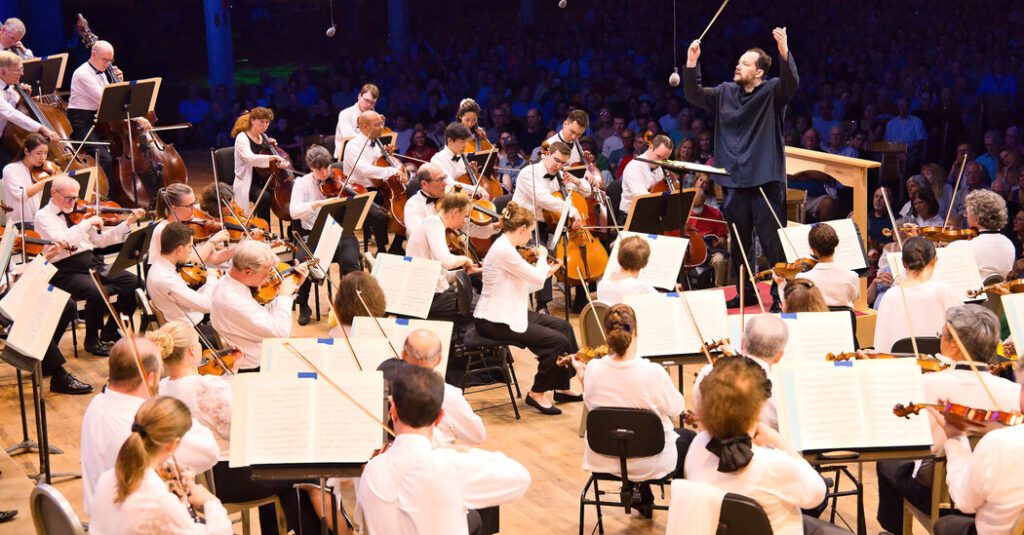However he stays a curiously modest interpreter. He doesn’t obtain the architectural self-discipline that colleagues who equally attempt to get out of the best way of the music can impose, nor does he draw out adequate readability or detailing of consequence alongside the best way.
Friday’s “Eroica” Symphony was typical: strong however unremarkable. Sunday’s Strauss, the 78th Boston Symphony live performance for which Nelsons has programmed works by this composer, sorely lacked character, above all within the suite from “Der Rosenkavalier.” Hardly ever can Octavian and the Marschallin have romped so cautiously, or Baron Ochs appeared so even keeled.
Nelsons actually does thrive when he has a soloist beside him, although, and that’s to his nice credit score: Few main conductors help the artists with whom they share a stage so graciously. Gil Shaham stepped in for an injured Hilary Hahn to play Beethoven’s Violin Concerto on Friday, and gave a considerate studying, typically seeming to carry out as a lot for his colleagues within the orchestra as for the viewers within the Shed.
Fleming returned to the stage a 12 months after her flip substituting for the cellist Yo-Yo Ma. She once more sang Strauss touchingly, providing three songs that included a magical “Befreit,” through which Nelsons hushed the orchestra to a spellbinding, regular calm. She additionally sang a pair of the Marschallin’s Act I monologues from “Rosenkavalier,” reflecting on the passage of time. Even for listeners seated close to the entrance of the Shed, she was gently amplified.
Another transition calls for word. The climate within the Berkshires has at all times been impetuous, however this previous weekend was a very brutal one: baking warmth, soaking rains, swampy humidity. Local weather change impacts each American orchestra, but it should actually have an effect on the Boston Symphony, which is determined by Tanglewood for its creative stature and its monetary stability, greater than most.
Invasive beetles already threaten the timber of Western Massachusetts, together with people who give the Symphony’s lands their persona and shade; a wetter, hotter summer season has an influence on taking part in situations, in addition to on attendance and infrastructure. American orchestras typically will not be doing sufficient in the case of local weather change. Right here, as elsewhere, the Boston Symphony can lead.



